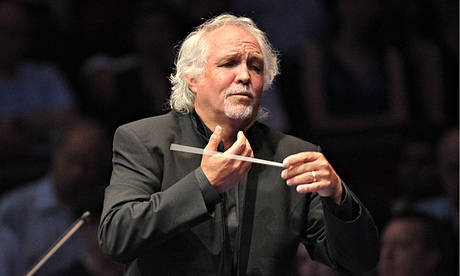
There’s a mini Shostakovich strand to the BBC Scottish Symphony Orchestra’s new season, with performances of the Fifth and 15th symphonies coming up in the next few months.
The opening concert was a brawny all-Russian affair that culminated in a gripping account of Symphony No 10. The collective focus, drive and dynamism of the playing only confirmed what has been clear for some time: that under its chief conductor Donald Runnicles, this orchestra really is outstanding. What made Runnicles’s take on the Tenth so effective was his mastery of line. He drew a single arc not just through the long, stop-start first movement but through the entire score, while allowing individual solos to meander and sing. The wind playing was stunning, especially Yann Ghiro’s finespun clarinet lines and David Flack’s yearning, stoic horn calls, and the strings were dark and ferocious in their attack.
This symphony emerged in 1953 shortly after the death of Joseph Stalin, and Runnicles didn’t shy away from the sense of menace that permeates the work. In fact he made it inescapable, whether in the brutish, coruscating scherzo, the chillingly whispered allegretto or the sardonic non-sequiturs of the finale. The impact was claustrophobic and absolutely riveting.
The concert opened with Mussorgsky’s A Night on the Bare Mountain, delivered with as much punch and sinew as Rimsky-Korsakov’s opulent reorchestration of the score can give. Barry Douglas was the soloist in Scriabin’s early Piano Concerto – a gushy, whimsical score with heavy hints of Chopin and Rachmaninov. There was something paradoxically matter-of-fact about Douglas’s playing; he captured the grand sweep of the music but kept his nuances upright and unhistrionic, almost understated. Torrid passages were borderline casual and he used a lot of soft pedal, which created some balance issues with the orchestra; its surging energy was irrepressible.

